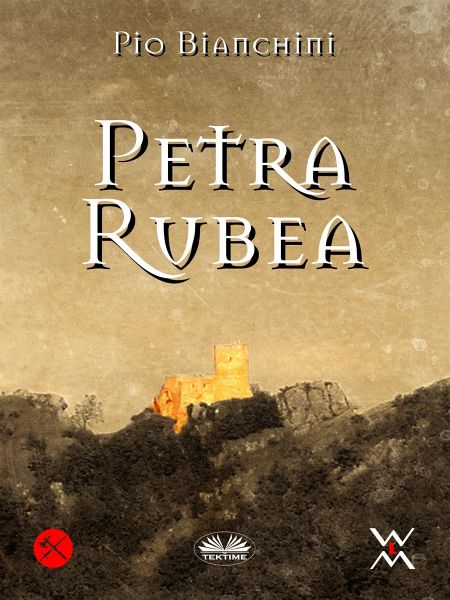
Petra Rubea (eBook, ePUB)

PAYBACK Punkte
0 °P sammeln!
The Medieval times were cruel and unmerciful, a savagely thriving landscape in a truly rich saga full of a dramatic turn of events that see this historic novel involve various and multiple characters, from servants, the clergy, soldiers, maids, nannies and farmers in the struggle of power over the opposition of the Ghibelline family of Montefeltro of Urbino (known today as Pietrarubbia), and the Guelph family of Malatesta of Rimini in San Leo. During the 13th century, Montefeltro and Romagna were the stage of numerous battles between the Guelphs and the Ghibellines. Set at the helm of the two ...
The Medieval times were cruel and unmerciful, a savagely thriving landscape in a truly rich saga full of a dramatic turn of events that see this historic novel involve various and multiple characters, from servants, the clergy, soldiers, maids, nannies and farmers in the struggle of power over the opposition of the Ghibelline family of Montefeltro of Urbino (known today as Pietrarubbia), and the Guelph family of Malatesta of Rimini in San Leo. During the 13th century, Montefeltro and Romagna were the stage of numerous battles between the Guelphs and the Ghibellines. Set at the helm of the two factions in conflict based on self serving interests at that time for prestige and personal gain, the noble lineages of the Montefeltro and Malatesti were contended rivals. In 1285, Count Guido of Montefeltro, leader of the Ghibelline party, Lord of Urbino and Captain of the Forlì and Faenza populations, was forced to surrender to the Guelph army, and after turning his two children in as hostages to Pope Honorius IV, was incarcerated in Chioggia. During the summer of 1289, Count Corrado of Pietrarubbia, who occupied Urbino and belonged to the primogeniture of the Montefeltro family, drove the Guelphs who were in alliance with the Malatesti family out of the city and brought back the exiled Ghibellines. This historically faithful and compelling story recounts many documented events, such as the Cesena ambush where Corrado of Pietrarubbia's men carried out the attack against the life of Malatesta da Verucchio, future Lord of Rimini, as well as the treaty of alliance of Montescudo who Taddeo of Pietrarubbia later pledged with his bitter enemy. It is in this context that Pio Bianchini integrates his story around the people of Petra Rubea - the Latin name for Pietrarubbia. The ancient and crumbling castle of Mount St. Lorenzo is held up by Bonzio, the trusted vassal of the Corrado and Taddeo brothers. Alvisio and Fraudolente, dubious characters paid by Count Corrado, who ravaged during times of peace and war, committing atrocious brutalities which provoked radical change to the precarious and unstable balance between the diverse political factions...
Dieser Download kann aus rechtlichen Gründen nur mit Rechnungsadresse in A, B, BG, CY, CZ, D, DK, EW, E, FIN, F, GR, H, IRL, I, LT, L, LR, M, NL, PL, P, R, S, SLO, SK ausgeliefert werden.












